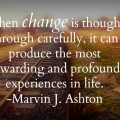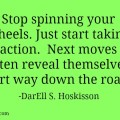I love starting new goals and projects. I also can’t stop myself from finishing them when I smell the completion just out of reach. But that long marathon of a middle drains my energy. The tedious, repetitive action part tanks my motivation.
I’ve learned that some people are like conquerors. They go in and take new territory. Other people are like settlers. They go into that fresh new country and make homesteads. Settlers seem to have no trouble with day to day maintenance and routines. If you have no trouble reaching your goals, maybe you have already written a step by step process for reaching goals that works for you.
 But, I’m a conqueror. If I’m not taking new territory, I feel stagnant like I’m not moving at all. This can be incredibly discouraging. A step by step, predictable process also doesn’t work for me because my life is not predictable, and I actually like it that way. If you love a lot of variety, work with people rather than things, or are in an incredibly long process, here are some strategies to help sustain your motivation.
But, I’m a conqueror. If I’m not taking new territory, I feel stagnant like I’m not moving at all. This can be incredibly discouraging. A step by step, predictable process also doesn’t work for me because my life is not predictable, and I actually like it that way. If you love a lot of variety, work with people rather than things, or are in an incredibly long process, here are some strategies to help sustain your motivation.
Don’t Schedule Everything:
“Appointments are a no no. Planning ahead is a no no.” –Arnold Schwarzenegger
One of the first tips that settlers give is to calendar everything. This really does work for some people. But, for others it feels stressful and leads to nothing but frustration. If one surprise happens to come up, the whole system is wrecked like a set of dominoes, sending a contagion of frustration that ripples throughout the whole day and sometimes the whole week.
In Messy, Tim Harford quotes a surprising result from Abrahamson and Freedman’s book A Perfect Mess. They discovered that students who made a daily plan to study actually ended up studying less than students who made no plan at all. Why? Because things would happen outside of their control that messed up their plans. Then, they would be so frustrated, they would give up or not recognize all the time they did have to study. What, then, is the solution? That same study found that students who made monthly goals studied far more than either of the other groups, on average over 10 hours more. That is more than three times the result of the daily plan average!
 This really works for me! Rather than set a daily or even a weekly goal, I set a monthly goal. Then, just like you might expect, I divide the work (or budget) into daily estimates and weekly benchmarks. I use these measureable targets to give me an idea of what I’m aiming for and then relax and seize opportunities when they come.
This really works for me! Rather than set a daily or even a weekly goal, I set a monthly goal. Then, just like you might expect, I divide the work (or budget) into daily estimates and weekly benchmarks. I use these measureable targets to give me an idea of what I’m aiming for and then relax and seize opportunities when they come.
Many days I may not be able to work on a particular goal at all which could be really discouraging. But monthly goals are so flexible that they can withstand a sick day or a busy week without getting off track. Monthly goals can help you see if you are beating your own expectations. I love surpassing my own estimates. This kind of winning is fun and super motivating. Comparing your performance to your expectations can also help you adjust your benchmarks if they are far too easy or too difficult to reach.
Whatever your chosen pace, don’t use that number to limit yourself (some days you might really be able to dive in and get more done) or to hit yourself (I’m so dumb I can’t even…..).
Over time you will be able to judge if your expectation is realistic with your current responsibilities.
How important is a SMART goal?
 If you have studied setting goals, you know there is a ton of literature out there about how to set a “SMART” goal. It has to be specific, measureable, attainable, realistic and timely. I have known this for years and still struggle to get my goals, especially personal, long term goals done. Why is that?
If you have studied setting goals, you know there is a ton of literature out there about how to set a “SMART” goal. It has to be specific, measureable, attainable, realistic and timely. I have known this for years and still struggle to get my goals, especially personal, long term goals done. Why is that?
An article published by Zapier recently caught my attention and excited me because it said that research has concluded that other aspects of goal setting are critical. For example, how important the goal is to you will determine how likely you are to get that goal. Now that makes a lot of sense! If it is important to us, we will push other things out of the way for it. If it isn’t, it will have to fit into the left-over spaces and may have to take longer or not get done at all.
So, set goals that are important to you, so important that you will make time for them and say no to other things. If it isn’t that important, it is a hobby and can take whatever free time you spend on it without a deadline.
Choose your focus: process vs end product
NASM’s course on behavior change explains that people who set process goals and performance goals do better than those who focus on specific outcomes. For example, someone who sets a goal to work out twenty minutes per day (process) or beat their personal time in the 2 mile by 1 minute (performance) have better results and are more likely to win races, etc. than those that set goals to win the race (outcome).
 Those that focus on winning or getting a result that they are not in control of and have to compete for (such as a particular job) are much less likely to get the coveted position because of the undue stress they put on that outcome. Being too worried about the results distracts from focused practice all along the way.
Those that focus on winning or getting a result that they are not in control of and have to compete for (such as a particular job) are much less likely to get the coveted position because of the undue stress they put on that outcome. Being too worried about the results distracts from focused practice all along the way.
So, don’t distract yourself with unnecessary worrying. Instead, focus on what you can control and the results will take care of themselves.
Consider your web of values
Studying to teach many cultures in school, I learned that some cultures emphasize the needs of the group over the needs of the individual. These strong social influences may cause us to prioritize helping others over meeting our own needs. This priority can interfere with our ability to accomplish personal goals. I’m not suggesting that this is wrong. I personally choose to set aside many things I prefer to do to meet the needs of my family, friends and work teams. I value group accomplishment and personal sacrifice.
Think about the very real forces in your own values that may be working against your personal plans. If you value family, for example, what your family needs is important to you, maybe even more important to you than practicing the piano today which might be a personal goal. If you go to sleep tonight with your family safe and fed, but with no piano practice done, how will you feel? Like you cheated yourself, or like you lived true to your most important values?
I’ve done both. It is easy to feel like I am there for everyone else and not there for myself if I let this value get out of balance. I do need to keep personal commitments just to myself, especially related to my health and well-being. But, I also see that my actions speak louder than my goals. I tend to do what is most important to me.
Go visual
If you appreciate visual feedback or like to see the big picture, charting steps, pages, or parts will help you see your progress. Checking off a box or visually seeing how many you have done compared to the whole project can be very encouraging. All you need is a paper or a white board with the right number of squares. Seeing progress sustains motivation.
But, if you try to accomplish something for years and you just never can seem to get your goal, I would like to suggest that maybe it isn’t really that important to you, at least not right now.
At my house several people play the piano. I don’t need to play it. I prefer to move and do useful and social things. Why do I think that when I have free time, I’m going to choose to sit alone day after day and practice in order to develop a skill that no one I know needs me to have?
We can let some things go.
We can stay flexible and centered on what really matters to us with larger time frames.
We can celebrate beating our predicted pace
And give our schedule some realistic breathing space.
Good luck reaching for your stars.
Namaste,
DarEll S. Hoskisson
About DarEll Hoskisson
DarEll S. Hoskisson loves to do hard things, but not too hard. She shares her own challenges, goals and experiences as she guides you into a realistic path of self-reflection and self-improvement. She shares tips on how to find, know and trust yourself so you can decide if other’s suggestions are right for you.
DarEll has the world a little upside down—where work is play and play is work. She actually thinks other people’s problems are fun to try to solve and lights up with a personal challenge. She loves people, harmony, and excellence. She also loves useful things like tools and ideas that make work faster, easier and more fun.
DarEll married in 1993 and graduated from BYU (1995) with a bachelor’s degree in English and Secondary Education. Since then she was adopted by 5 children and has worked with many non-profits. She is currently a certified personal trainer and group fitness instructor—leading pilates and yoga at her local YMCA.
DarEll lives in Florida where she enjoys her family, nature, her work, and encouraging people to live well.
She periodically posts her poems, what she is learning, and service opportunities on her personal blogs:
https://personalabridgements.wordpress.com and https://darellhoskisson.wordpress.com
Twitter •








It is really interesting to me that I do both the “schedule stuff” and live with my calendar, but also, for my projects, I very much have a “yearly goal” that I subdivide into benchmarks to reach along the way. Maybe I am a settler with a little conqueror in me?